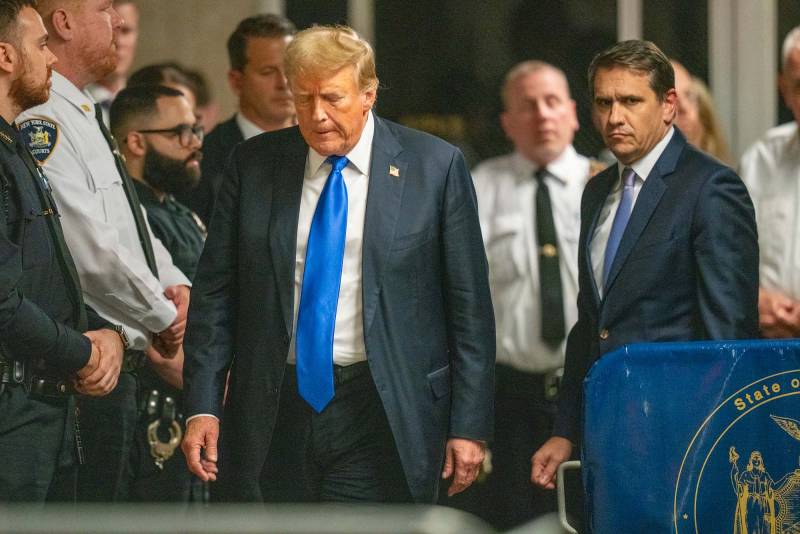
“History will be made when Chief Justice John Roberts will visit the Jail Cell of President Trump and administer his oath to the Presidency. This will be followed by the first executive order by the President pardoning himself before he takes the reins.”
This statement represents the sentiments of staunch Trump Republicans who only see their candidate's conviction as something that will only strengthen his electoral base. Their evidence: $52.8 million raised in the first 24 hours after the conviction.
Although this statement represents several emotions that red voters are grappling with, it also encompasses much of the pertinent legal question regarding the consequences of this conviction. As things stand right now, the former President is likely to go into an appeal which might give him some time to carry on with his campaign. Legally speaking, being in prison does not bar someone from contesting the Presidential elections. In fact, there is precedence for someone contesting the election from prison.
With it being more or less clear that this would not impact his candidacy, the pertinent question is whether this shall impact his popularity. Although Republicans seem to want to stick to their nominee, it is assumed that his conviction may make some dent in Trump’s popularity. The VP selection, now, becomes even more imperative, as the VP pick shall be leading the campaign with the possibility of the former President facing a jail sentence. Interestingly, the jail sentence is reserved for 11th July, just days before the Republican National Convention. It is customary for the Presidential nominee to give a speech before the party’s convention. With the possibility of a jail sentence, the possibility of a speech from a major party’s candidate hangs in the balance.
It is indeed unprecedented that a former President of the United States is being indicted in several cases during an election year. The series of events up until now has welcomed mixed views from political pundits, some referring to this as undemocratic in essence as this is reducing political competition and inadvertently favoring President Joe Biden of the Democratic Party. However, some believe that no one should be above the law and this is a welcoming precedent. One must, nevertheless, be vary of the logistical complications this may entail.
With the sentencing on 11th of July, there is a lot of speculation as to how the campaign may look like. Justice Juan Merchan, the judge on this case has wide authority on sentencing, he may choose to sentence President Trump to just community service or a fine. On the contrary, if the former President is actually given a prison sentence, his participation in the campaign becomes a big question. To add to this confusion, President Trump’s participation in the second presidential debate becomes unclear. This is particularly why the president’s legal team are filing for an appeal instantly and pleading the case for deferred sentencing.
The way US democracy has evolved, it is definitely unprecedented how an ex President and a presidential candidate is facing several indictments. However, these indictments do not seem to be impacting Trump’s popularity and even if it is, it may not feed directly into President Biden’s vote bank.
Nevertheless, the possible sentence may halt the energy within his campaign, keeping him out of the campaign trail, which may be detrimental for his chances at the polls in November.

